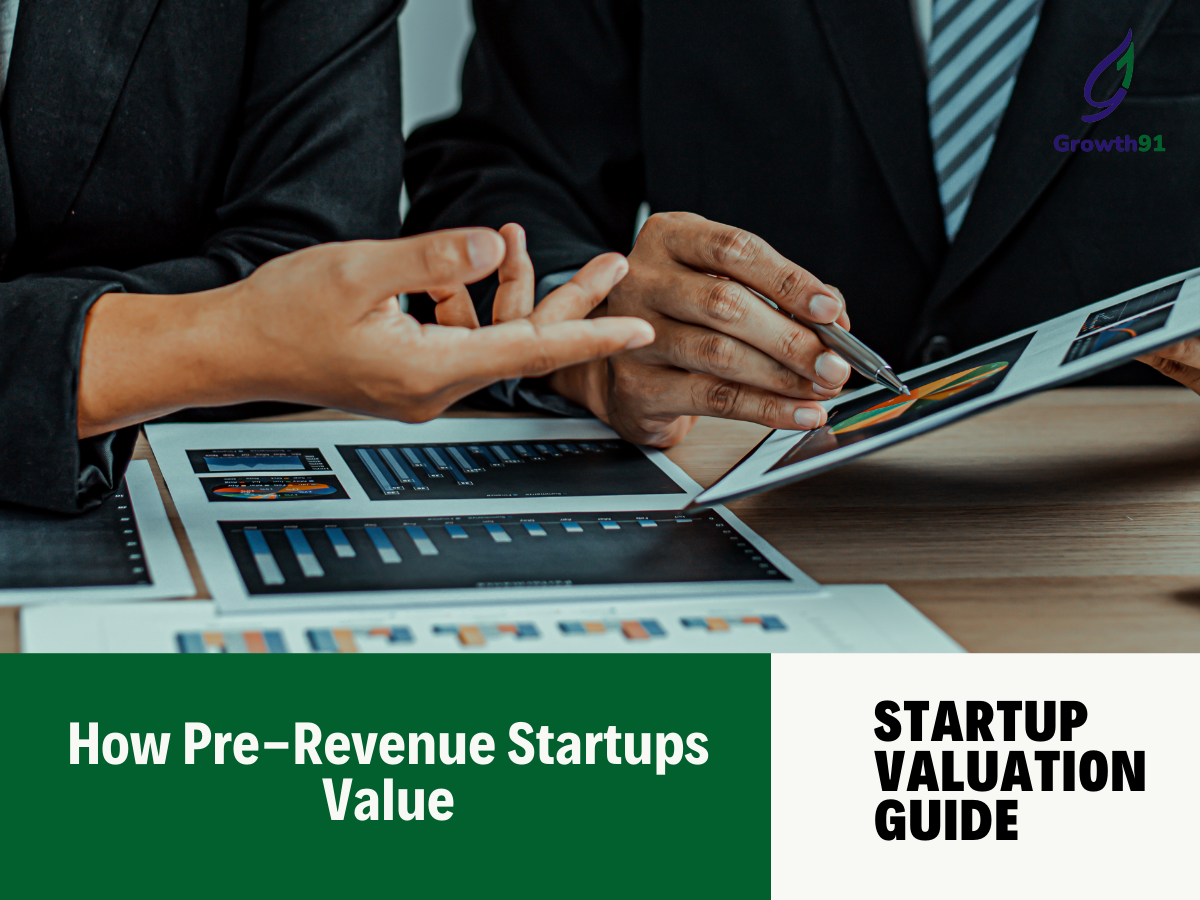
Introduction
Valuing a startup is one thing, but valuing a pre-revenue startup? That’s a whole other challenge. With no income statements or profit margins to examine, how do investors determine if a young company has the potential to succeed? If you’ve wondered how startups without revenue attract investors, you’re not alone. Let’s explore the main methods and factors in valuing these early-stage businesses.
Understanding Pre-Revenue Startups
Pre-revenue startups are young companies still in development stages, often focusing on research, product creation, or market testing. Without any revenue, they operate on investment and bootstrapping funds, aiming to bring an idea to market.
Why Valuing Pre-Revenue Startups Is Tricky
Unlike traditional businesses, pre-revenue startups lack the financial data usually needed for valuation, like cash flow, profit, or even sales. This absence of metrics requires investors to evaluate potential based on non-traditional criteria, which comes with a fair amount of guesswork and risk.
Common Methods for Startup Valuation
Several methods help investors estimate the worth of a pre-revenue startup. Each approach offers unique insights, balancing risk and optimism.
The Berkus Method
The Berkus Method assigns dollar values to five critical components of a startup, focusing on elements like concept and quality of the management team. By giving a monetary value to each factor, it provides a more structured approach to early-stage valuation.
Scorecard Valuation Method
The Scorecard Valuation Method compares a startup to others in the same industry and stage, adding or subtracting value based on unique strengths or weaknesses. Think of it as an in-depth, industry-focused scoring system that accounts for a startup’s relative position among peers.
Risk Factor Summation Method
This method assesses 12-15 risk factors, such as market risk, competition, and technology. Each risk factor is adjusted to either add or subtract value from the base score, giving a comprehensive overview of potential hurdles.
Cost-to-Duplicate Method
The Cost-to-Duplicate method estimates the amount it would take to recreate a startup. If a company has already spent $100,000 on development and assets, for instance, that figure could act as a base valuation, helping investors assess what they’re paying for.
Venture Capital Method
The Venture Capital Method (VCM) projects a startup’s future value after reaching a mature stage, then calculates backward to estimate its current worth. VCM helps align early-stage funding with a startup’s future growth potential, making it a go-to choice for venture capitalists.
Factors Investors Consider
Since standard financial metrics don’t apply, investors look to other key indicators when evaluating pre-revenue startups.
The Role of Founders and Teams
The founding team often has a significant impact on valuation. Investors assess their backgrounds, expertise, and ability to execute on the business plan. An experienced team can substantially increase a startup’s perceived worth, giving investors confidence in their ability to navigate the challenges of a startup.
Product and Market Potential
Even without revenue, a strong product concept that solves a real-world problem can attract interest. Investors look for evidence that the product has market fit, demonstrated through user interest or pre-launch traction. An analogy often used here is the “iceberg effect,” where a small part of the startup’s potential is visible, hinting at a larger opportunity beneath.
Competitive Landscape
Understanding the competition helps investors gauge a startup’s ability to succeed in its niche. A crowded market could be a red flag, but a well-defined competitive edge can boost valuation, showcasing the startup’s potential to stand out.
Intellectual Property and Innovation
Having intellectual property (IP), patents, or unique innovations can add significant value. Proprietary technology or a new approach gives the startup a competitive advantage, reducing the risk of replication by others.
Milestones and Progress
Milestones indicate that a startup is advancing toward its goals. Key achievements, like securing partnerships or hitting product development targets, give investors confidence that the team can execute and make progress toward profitability.
Closing Thoughts
Valuing a pre-revenue startup is more of an art than a science. By analyzing factors like team strength, market potential, and competitive positioning, investors can make educated guesses about a startup’s future. While no method guarantees accuracy, these approaches provide essential insights for those willing to take the risk.
Growth91: Empowering Investors and Entrepreneurs Alike
When it comes to startup investment, finding a reliable platform that connects investors with promising startups is essential. That’s where Growth91 comes in. Growth91 serves as both a startup investing platform for investors and a funding platform for startup founders looking to secure financial backing. Whether you’re aiming to invest in Indian startups or seeking resources to fuel your startup’s growth, Growth91 offers a comprehensive ecosystem for both sides of the investment equation.
For investors, Growth91 opens doors to diverse, high-potential startups across various industries, offering opportunities to be part of India’s growing startup landscape. The platform emphasizes transparency and accessibility, making it easier for the general public to confidently step into the world of startup investment.
On the other hand, Growth91 also stands out as a valuable resource for startup founders and entrepreneurs in need of funding. By providing a space where innovative ideas meet ready capital, Growth91 helps startups gain traction in competitive markets, helping them unlock the potential to scale.
Whether you’re an investor excited to support the next big idea or a founder seeking essential funding, Growth91’s startup investing and funding platform simplifies the process, fostering growth and success for both investors and startups alike.

Leave a Reply